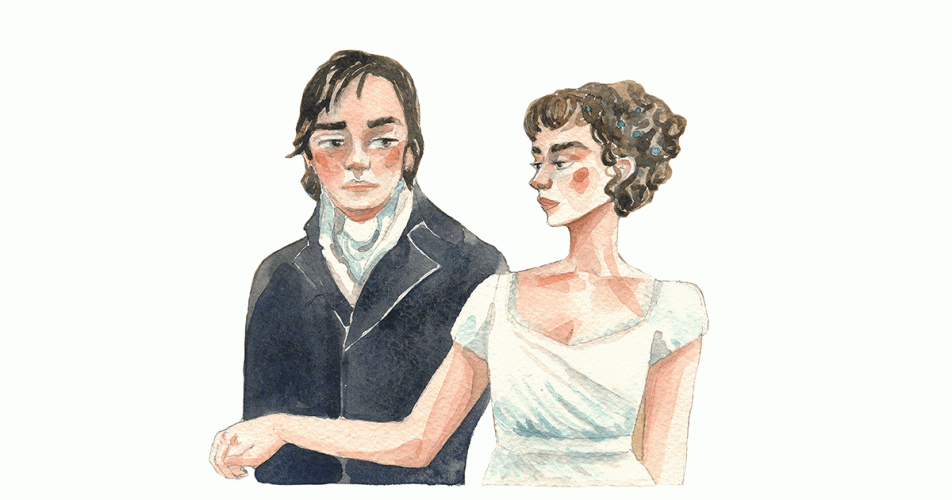This ain't no Jane Austen novel – case study
When an employee filed a sexual harassment claim with the Australian Human Rights Commission, the defendant claimed his conduct was a romantic campaign akin to the actions of Mr Darcy from Pride and Prejudice.

We have already highlighted in the Respect@Work article what we consider examples of prohibited conduct under the Sex Discrimination Act 1984. We can also confirm a person in breach of this section of the Act is also considered to have unlawfully discriminated against the employee under the Australian Human Rights Commission Act 1986. As such, the Federal Court or Federal Circuit and Family Court of Australia can make orders, including ordering compensation for any damage or loss the employee suffers because of the sexual harassment.
Sexual harassment cases often involve an employer using their power to harass an employee. However, there is no requirement for a harasser to be in a position of power over the employee. It is sufficient that the harassment occurred in the workplace and therefore interfered with the employee’s ability to work in safety and comfort. It is also crucial for employers to understand they can be vicariously liable for their employee’s actions, even if the sexual harassment occurs outside the workplace and after work hours. An employer can minimise their liability claim by demonstrating they have taken all reasonable steps to prevent sexual harassment in the workplace and responded appropriately to resolve any incidents.
The case of Hughes v Hill (2020) attracted widespread notice due to the employers characterisation of his conduct as akin to the romantic overtures of Jane Austen's fictional character, Mr Darcy from Pride and Prejudice. This case is also notable for clarifying sexual harassment under federal law and the significance of this case for sexual harassment in the workplace.
In the case above, Mr Hughes employed Ms Hill in his law firm as a paralegal. Due to the fact that he also acted for her during mediation with her ex-husband, he had access to her personal and confidential information. There was a clear power differential between the law firm principal and his employee; Mr Hughes had also promised to train Ms Hill as a solicitor.
In June 2016, Ms Hill resigned and filed a sexual harassment claim with the Australian Human Rights Commission. This matter was not resolved in the AHRC. Ms Hill then filed with the Federal Circuit Court. The trial judge determined that Mr Hughes had engaged in a relentless campaign of sexual harassment against Ms Hill, based on the following facts;
- he sent repeated, unsolicited messages to Ms Hill offering romantic relations and professing his love for her
- while on a work trip to Sydney, he entered her hotel room and waited on her bed in his underwear
- he obstructed her from exiting her office until she hugged him
- he made thinly veiled threats that her employment depended on them entering a romantic relationship.
Mr Hughes was ordered to pay Ms Hill $170,000 in damages. When Mr Hughes appealed to the Federal Court, he did not refute Ms Hill’s description of events, but he denied they were ‘sexual’ as defined by the Sex Discrimination Act. He also argued the damages were manifestly excessive.
The Federal Court dismissed the appeal and Mr Hughes' defence that his conduct was a romantic campaign akin to the actions of Mr Darcy from Pride and Prejudice. Justice Perram found the facts of the case did not reflect misguided romantic conduct, as the facts were “as far from a Jane Austen novel as it was possible to be”.
He further pointed out that whatever ambiguity might exist over the definition of an unwelcome sexual advance, it definitely includes an employer waiting for his employee in her bedroom dressed only in his underwear.
Justice Perram denied the award was excessive, saying if the court had been asked to reconsider aggravated damages, he would have awarded a larger sum. This case demonstrates the courts increasing tendency to avoid and uphold orders for general and aggravated damages for sexual harassment cases.
Workplace Relations Support provides AMA Queensland members with email and phone support with assistance in understanding legislation requirements. You can contact us via phone (07) 3872 2264 and email support workplacerelations@amaq.com.au.
|
Workplace Relations Support |
|
|
Workplace Relations Toolkit
|
|
| Workplace Relations Consultancy can review current workplace policies and provide advice on how they should be updated to remain compliant. |



